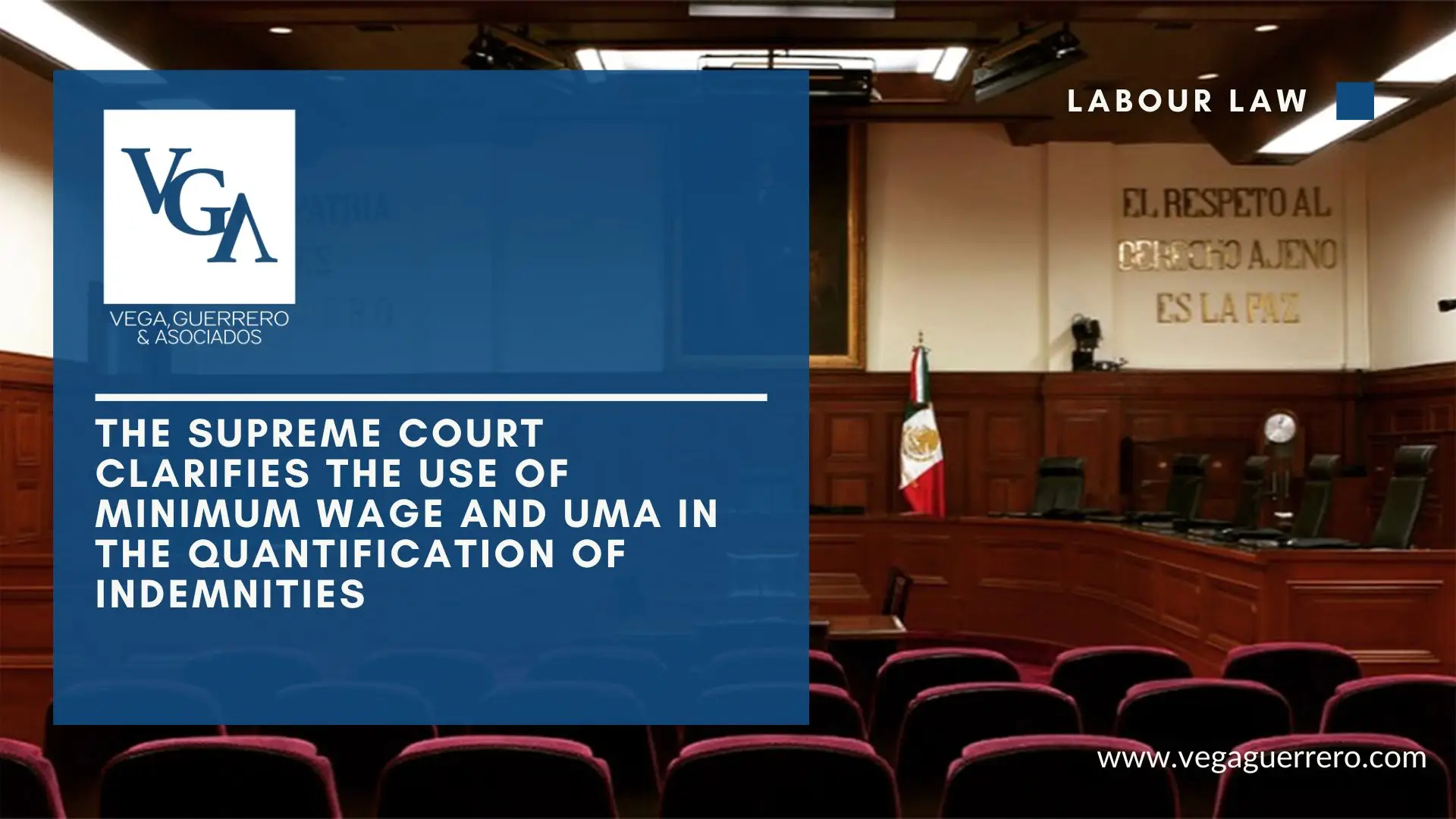Background
On January 27, 2016, a constitutional reform was enacted that decoupled the minimum wage from various non-labor concepts and established the Unidad de Medida y Actualizacion (UMA) as a reference in federal and local laws. The purpose of this reform was to prevent the minimum wage from being used as a basis for calculating obligations unrelated to its nature, such as fines or penalties. However, the First Chamber of the Supreme Court of Justice of Mexico has issued a jurisprudence published in the Judicial Weekly of the Federation on August 23, 2024, which establishes that the substitution of the minimum salary for the UMA is not an absolute rule, but must be analyzed on a case-by-case basis.
Key Points of the Jurisprudence
1. Case-by-Case Judgment Rule
The Supreme Court determined that the use of the minimum wage instead of the UMA is not categorically prohibited by the Constitution. Rather, the application of one or the other depends on the purposes and nature of the obligation. If the use of the minimum wage is aligned with its purpose, it may continue to be used as a reference for the quantification of indemnities or damages.
2. Context of the Case
This criterion arose from a case of compensation for pecuniary and non-pecuniary damages derived from a road accident. The responsible court had decided that the compensation should be calculated based on the UMA, but the First Chamber of the Supreme Court decided that, in this particular case, the minimum wage should be used, since its use was consistent with the purpose of the compensation.
3. Compensation for Loss of Profit
The Supreme Court determined that, in cases of compensation for pecuniary damages derived from the death or disability of a person, the minimum wage must be used as the basis for the quantification of lost profits. The UMA has no relation to the productive capacity of a person, so its use would distort the purpose of compensating the loss of income. On the other hand, the minimum wage, due to its labor nature, is considered adequate to reflect the lost working capacity.
4. Impact of the 2016 Reform
The Court emphasized that the 2016 reform did not intend an absolute de-indexation of the minimum wage. Rather, it sought to limit its use to strictly labor obligations and prevent it from being used in other concepts unrelated to its nature. Each case must be evaluated to determine whether the use of the minimum wage complies with the purposes for which it is intended.
Significance of this decision
This case law has significant implications for the interpretation of the 2016 constitutional reform. Companies and individuals should be aware that the use of the minimum wage or the UMA may depend on the specific context and the nature of the obligation being assessed. This is especially relevant in cases of damage awards, as the determination of the amount to be paid could vary according to judicial interpretation.
For legal advice on the interpretation and application of these provisions, do not hesitate to contact us at Vega, Guerrero & Asociados. Our team is prepared to guide you through these complex legal issues.




